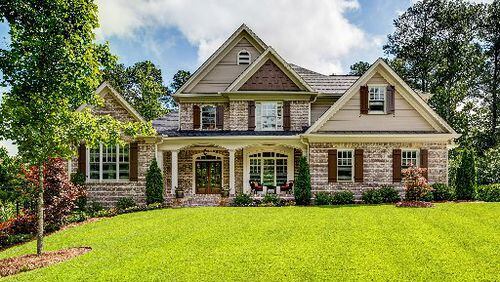Atlanta's home prices are still rising, but the rate of increase has been slowing, according to a nationally watched report issued Tuesday.
The price of the average home sold in the metro area is up 5.4 percent from a year ago, edging 0.2 percent higher during the most recent month, according to the S&P CoreLogic Case-Shiller Indices.
Nationally, prices were up 6.1 percent in the past year and 0.5 percent last month, said David Blitzer, chairman of the index committee at S&P Dow Jones Indices, which issues the report. "Home price increases appear to be unstoppable."
Low mortgage rates and solid job growth have been powering the housing market, and there has been extra fuel – especially in Atlanta – from a market imbalance: Surging demand versus a shortage of homes listed for sale.
Home values have been rising faster than other prices: the consumer price index is up just 2.2 percent in the past year and wages on average were up 3.6 percent.
That makes housing tougher to afford, said Svenja Gudell, chief economist for Zillow. “For those home owners, buyers and sellers already in the market, things are markedly easier than for those would-be buyers trying to get in on the bottom rung.”
If home prices keep outpacing wages, it portends trouble, she said. “It all leaves us wondering which of these trends might break in 2018 – if any.”
Market balance can come from several different things. A recession – which would crush demand — would be the painful way. But there are other ways.
“The inventory shortage is a national issue,” said Laura Rittenberg, president of Coldwell Banker Residential in Atlanta. “We see so many people coming in to Atlanta, moving here. We’ll need to see more home construction.”
While some areas are much hotter than others, the average Atlanta price has risen 70 percent since hitting bottom in 2012, according to Case-Shiller. That dramatic climb climb has pulled it higher than the pre-recession peak of 2007 – but just barely.
There are some signs that the price-hike engine is dropping back a gear. Adjusted to reflect seasonal patterns, Atlanta’s prices last month were actually down 0.2 percent.
That means that while the average price inched up, it was less of an increase than the region usually sees.
Atlanta’s deceleration is part of a trend among the big metros, said Cheryl Young, chief economist at Trulia. “This is the lowest annual price growth since September 2016. Monthly changes in home prices are becoming more moderate.”
During the past year, Atlanta had the 14th fastest price growth among the nation's 20 largest metros. The strongest rise came in Seattle, where prices climbed 13.2 percent. Weakest was Washington, D.C., up just 3.4 percent during the year.
About the Author







